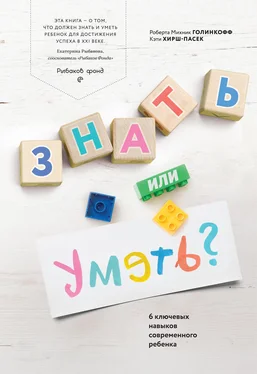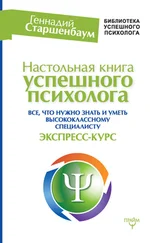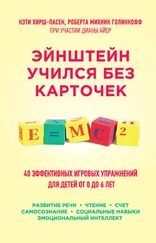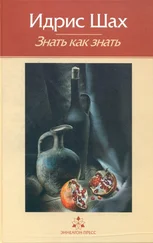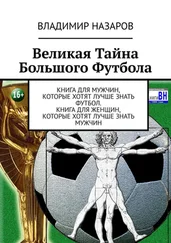Casner-Lotto, J., & Barrington, L. (2006). Are they really ready to work? Employers’ perspectives on the basic knowledge and applied skills of new entrants to the 21st century US workforce. См. здесь: www.p21.org/storage/documents/FINAL_REPORT_PDF09-29-06.pdf.
Casner-Lotto, J., & Barrington, L. (2006). Are they really ready to work? Employers’ perspectives on the basic knowledge and applied skills of new entrants to the 21st century US workforce. См. здесь: www.p21.org/storage/documents/FINAL_REPORT_PDF09-29-06.pdf, с. 24.
Bond, T.J., Galinsky, E., Kim, S.S., & Brownfield, E. (сентябрь 2005). 2005 national study of employers. См. здесь: familiesandwork.org/site/research/reports/2005nse.pdf.
Adams, S. (11 октября 2013). The 10 skills employers most want in 20-something employees. Forbes Magazine. См. здесь: www.forbes.com/sites/susanadams/2013/10/11/the-10-skills-employers-most-want-in-20-something-employees/.
Partnership for 21st Century Learning. (n.d.). Framework for 21st century learning. См. здесь: www.p21.org/about-us/p21-framework.
Partnership for 21st Century Learning. (n.d.). Framework for 21st century learning. См. здесь: www.p21.org/about-us/p21-framework.
Hirsh-Pasek, K., Golinkoff, R.M., Singer, D., & Berk, L. (2009). A mandate for playful learning in preschool: Presenting the evidence. New York, NY: Oxford University Press.
«Змеи и лестницы» — древняя индийская настольная игра, изначально предназначалась для игровых занятий по религии: хорошее поведение и праведные поступки — лестницы, ведущие наверх, неправильное поведение — змеи, ведущие вниз. В наше время игра мало относится к религии. Игроки по очереди бросают кубик и передвигаются на определенное количество клеток. Некоторые клетки поля обычные, клетки с лестницами и змеями перемещают фишку игрока в другую клетку. Выигрывает тот, кто первым доберется до финиша.
Sifting your Harvard questions, looking for parenting (and other) lessons. (21 сентября 2009). The New York Times. См. здесь: thechoice.blogs.nytimes.com/2009/09/21/harvardquestions/?_php=true&_type=blogs&_r=0#more-8381.
Галински Э. Я сам! Или как мотивировать ребенка на успех. М.: Эксмо-Пресс, 2010.
Galinsky, E. (2010). Mind in the making: Seven essential life skills every child needs. New York, NY: HarperCollins.
Organisation for Economic Co-Operation and Development. (2015). Skills for social progress: The power of social and emotional skills. Washington, DC: Author, с. 2.
Dalton, D. (23 сентября 2013). The hard truth about soft skills. См. здесь: dorothydalton.com/2013/09/23/professional-summary-soft-skills/, абзац 1.
Mathews, J. (5 января 2009). The latest doomed pedagogical fad: 21st-century skills. The Washington Post. См. здесь: www.washingtonpost.com/wp-dyn/content/article/2009/01/04/AR2009010401532.html.
Meltzoff, A.N., Kuhl, P.K., Movellan, J., & Sejnowski, T.J. (2009). Foundations for a new science of learning. Science, 325, 284–288.
Zernike, K. (7 декабря 2000). Ease up: Top colleges tell stressed applicants. The New York Times. См. здесь: www.nytimes.com/2000/12/07/us/ease-up-top-colleges-tell-stressed-applicants.html?pagewanted=all, абзац 6.
Jones, D.E., Greenberg, M., & Crowley, M. (2015). Early social — emotional functioning and public health: The relationship between kindergarten social competence and future wellness. American Journal of Public Health, 105, 2283–2290. dx.doi.org/10.2105/AJPH.2015.302630.
Carnegie, D. (1936). How to win friends and influence people. New York, NY: Pocket Books.
Хеврута — традиционный еврейский способ изучения Торы в парах, чтобы анализировать разные аспекты изучаемого и устраивать своеобразное интеллектуальное состязание по прочитанному тексту, добавляя что-то к своему в и дению или исправляя в результате обсуждения.
Radsky, J.S., Kiston, C.J., Zuckerman, B., Nitzberg, K., Gross, J., Kaplan-Sanoff, M., … Silverstein, M. (2014). Patterns of mobile device use by caregivers and children during meals in fast food restaurants. Pediatrics, 133, e843. dx.doi.org/10.1542/peds.2013–3703.
Некоммерческая образовательная организация, созданная в 2006 году выпускником Массачусетского технологического института и Гарварда Салманом Ханом. Цель организации — «предоставление высококачественного образования каждому, всюду». На сайте академии размещены более чем 4200 бесплатных микролекций по многим школьным предметам.
Авторы ссылаются на строку из песни People в исполнении Барбры Стрейзанд — «…people who need people».
Tomasello, M. (2014). The ultra-social animal. European Journal of Social Psychology, 44, 187–194. dx.doi.org/10.1002/ejsp.2015.
Wade, N. (14 марта 2011). Supremacy of a social network. The New York Times. См. здесь: www.nytimes.com/2011/03/15/science/15humans.html?pagewanted=all&_r=0.
Tomasello, M. (2009). Why we cooperate. Boston, MA: Boston Reviews Books.
Tomasello, M. (2001). The cultural origins of human cognition. Cambridge, MA: Harvard University Press.
Tomasello, M. (2001). The cultural origins of human cognition. Cambridge, MA: Harvard University Press, с. 202.
Chase, Z. (2011, March). Want a job? You ought to be a tech geek. См. Сайт National Public Radio: www.npr.org/templates/transcript/transcript.php?storyId=134236010, абзац 24.
Daly, M., Delaney, L., Egan, M., & Baumeister, R.F. (2015). Childhood self-control and unemployment throughout the life span: Evidence from two British cohort studies. Psychological Science, 26, 709–723. dx.doi.org/10.1177/0956797615569001.
Mischel, W., Ayduk, O., Berman, M.G., Casey, B.J., Gotlib, I.H., Jonides, J., … Shoda, Y. (2011). “Willpower” over the life span: Decomposing self-regulation. Social Cognitive and Affective Neuroscience, 6, 252–256. dx.doi.org/10.1093/scan/nsq081.
Читать дальше
Конец ознакомительного отрывка
Купить книгу
